Nicki Minaj is arguably the best-selling female rapper in history and, a controversial topic – who rose to fame when the hip-hop music industry transformed in extreme ways. Previously, hip-hop reduced women rappers’ presence, moved towards a commercial model of marketing, marketing to the mainstream – a whiter audience. She achieved her fame by using alter egos and her “Barbie” persona which pushed the limits of blackness. She utilized her body as a commodity for mass consumption by fans through music videos and social media – and because of this has been accused of being hypersexualized, fake, and a terrible public figure for black women and black feminism. However, Nicki Minaj has certain aspects of feminism, yet her toxic behavior towards other female artists also makes people question whether she embodies hip hop feminism.
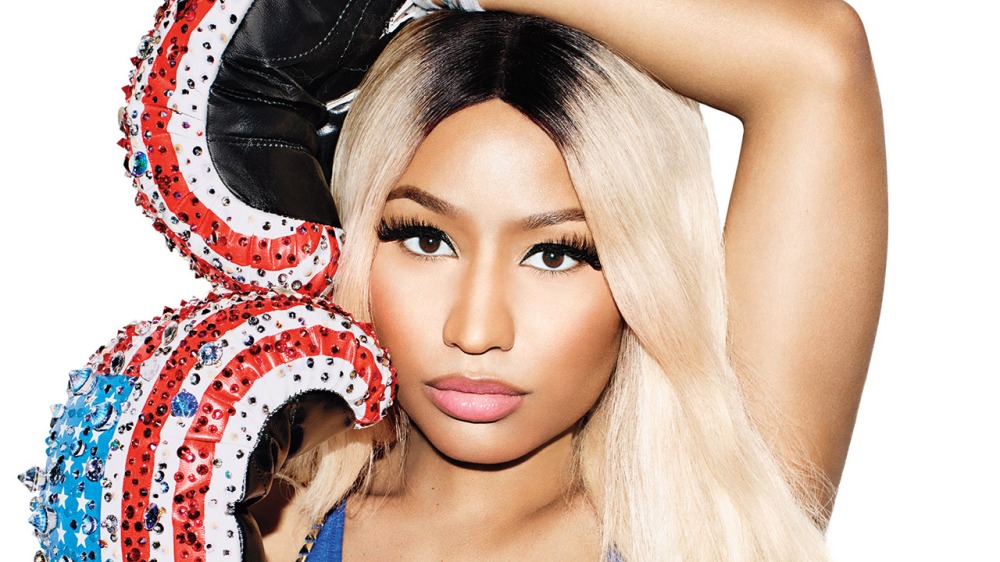
Primarily, Nicki Minaj faced many criticisms due to her use of alter-egos, precisely her “Harajuku Barbie” alter-ego. Kreayshawn, another femcee, criticized Minaj’s Barbie persona, stating, “…when it comes to inspiring young women, her message is to be a Barbie- to be plastic, to be fake, to all have blonde hair” (Ahmed, 2011). Many can argue that Barbie is an object that is signified – not a signifer. She is an object for the purpose which young girls could project their desires onto it. In the same way, black women have a history of being signified with stereotypes: “Aunt Jemima”, “Jezebel”, “Mammy”, and “Sapphire”. They have been and continue to be marked by detrimental stereotypes on cultural, political, and social levels. This is evident when Hortense Spillers defined “hieroglyphics of the flesh” which can be applied to the stereotypical markings on the black woman’s body “whose severe disjunctures come to be hidden to the cultural seeing by skin color” (Spillers, 1987). Despite this, Whitney argued that, “Minaj’s brand of Barbie doll-like femininity both imitates and parodies the iconic doll, going beyond straightforward identification” (Whitney, 2012). By mimicking certain Western standards of beauty, Minaj sensationalizes and undermines Barbie. Nicki Minaj does not attempt to conform to Western beauty ideals; instead, she deconstructs ideas revolving around Western beauty, white supremacy, and (black) womanhood through her parody-like imitation of Barbie. Her use of alter-egos contributed to her success in the music industry, increasing her theatrical variety and alluring numerous performance communities and cultures. Also, it created a space for black women, female MCs, and hip-hop overall to include homosexuality in their discourses.
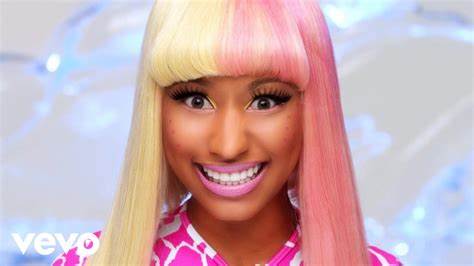
Despite the oppositions, Nick Minaj became one of the most significant female rappers of this time. Most, if not all, of her lyrics are unapologetic, and they offer insight into hip-hop feminism. Hip-hop feminism is an umbrella term “to encompass creative, intellectual work regarding girls and women in hip-hop culture and/or as part of the hip-hop generation”; and it can be defined as “a cultural, intellectual, and political movement grounded in the situated knowledge of women of color… to challenge, resist, and mobilize collectives to dismantle systems of exploitation” (Durham, Cooper, & Morris, 2013). Durham argued that hip-hop feminism can be understood as being both disruptive and generative (Durham, Cooper, & Morris, 2013). Minaj’s lyrics and music arguably models itself on hip-hop feminism since it operates in this impactful manner.
Primarily, there is the question of whether Nicki’s unapologetic display of her sexuality aligns with hip-hop feminism, and feminism in general, or not. Some have compared Minaj to Sarah Bartmann, also known as Venus Hottentot, an African woman who was used in a circus, showcasing her body to European viewers. Theresa Renee White wrote in one of her articles, “The public sexually explicit humiliation and fascination of Minaj’s black body reveals a close resemblance to that of Venus Hottentot. The 2011 hip-hop chart topper has been publicly acknowledged more for her large buttocks than her rap talent” (White, 2013). However, Minaj’s exhibition of her sexuality has always been under her control, unlike Venus Hottentot. Also, it is not a direct result colonization. Hottentot was an object for the male gaze without any form of agency. It can be argued that Nicki is also an object of the male gaze; however, she demonstrates her body with pride, throwing into disarray Western thought about blonde, or white, and thin equate to beautiful. Also, White did not to reference her aptitude in rapping, which made her one of the successful female rappers in the hip-hop industry. Jennifer Dawn Whitney wrote, “when Pink Friday went platinum in 2011, it had been preceded by an eight-year drought for women in the business” (Whitney, 2012). In a male-dominated, and very sexist, hip-hop climate, Minaj arose as an extraordinary force. She constructed her own narrative that centered around black womanhood.
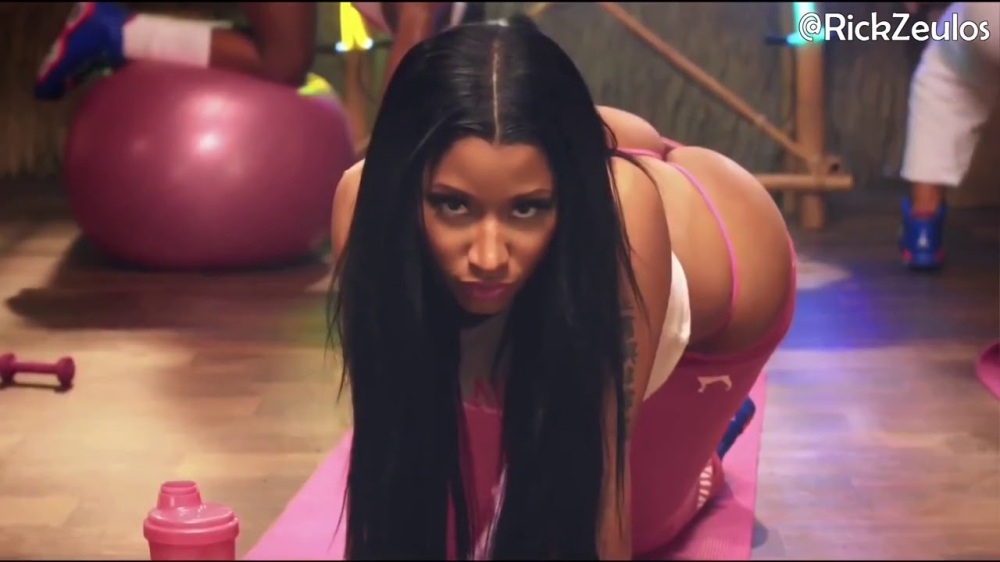
In the end, it can be argued that the seeming juxtaposition between her hypersexuality and her awareness of feminist issues within the black community and hip-hop is an example of some of the notions embodied in hip-hop feminism. Superficially, Nicki Minaj mirrors Lil Kim and even Foxy Brown whom described by Gwendolyn Pough as someone who “at first glance would appear to epitomize the hos and bitches that men rappers rap about” (Pough, 2004). She argues that hypersexual rappers such as the two previously mentioned – and Nicki Minaj – are claiming the right to be who they want to be in the sphere of rap, whether they be considered rude or sexually promiscuous (Pough, 2004).
Regardless, there is a perceptible discordance between hip-hop feminism and respectability politics. Respectability politics has been used by Black women and other women of color to assimilate and appeal to the white capitalist heterosexual patriarchy as a means of progressing within that system of power. Within this system, a fallacious narrative which “black and brown bodies have been historically configured as excessive, with unrestrained desires” has completely limited how black and brown sexualities can be made comprehensible within academia and pop culture (Durham, Cooper, & Morris, 2013). Therefore, hip-hop feminism intends to deconstruct this narrative and reclaim Black women’s sexuality and agency. Respectability politics, however, considerably clashes with this, despite the logic behind reclaiming sexual agency being sensible. The following questions can make people contemplate this further. When is female rap innately disruptive? When is it advantageous and when is it harmful? “Anaconda”, “Feeling Myself”, “Only”, and “Super Bass” songs and their respective music videos provide insight in regards to these simple, yet complex questions. In these songs and music videos, Minaj subverts habitual gender norms in hip hop by implementing her sexual agency and embracing her body type. She flips gender roles by using men for sexual needs and using them as “vixens”, roles which women had in music videos throughout most of hip-hop history. “Anaconda” embraces black women’s curvy body types subverting American (white) beauty standards.
Hip-hop feminism analyzes and conceptualizes women in hip hop culture and music. The presence of female MCs, in hip-hop feminism, means acknowledging them as being equal to their male counterparts, but also acknowledging their intersectional identities: black female rappers and black women overall. It aims to humanize a group of people that “especially during the Transatlantic Slave Trade, have had to relinquish autonomy over their bodies time and time again” (Gibson, 2015). It also identifies the blatant misogyny in hip-hop, a patriarchal sphere that has commercialized, immobilized, and standardized the use of “bitch”, “hoe”, and “thot” regarding black women’s bodies. Despite this, female MCs and their music became a threat to hip-hop’s patriarchy, while trying to figure it all out. A black woman – a black femcee, in a predominantly male space was, and still is, political regardless of intentions.
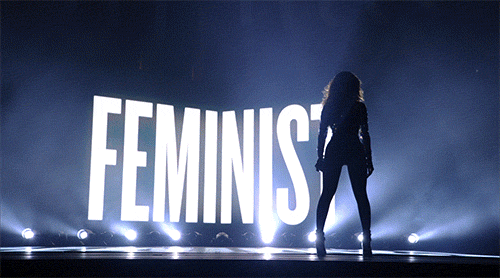
Especially in contemporary activism, black women’s bodies frequently have been at the front, standing firm and fighting for their communities’ while being overlooked or disregarded. Social change in hip-hop means to unapologetically have discourse regarding identity politics and sexuality within the mainstream culture. Women such as Lil Kim, Foxy Brown, CupcakKe , and Nicki Minaj have done this. As a result, women no longer need to settle with the problematic boundaries between female (sexual) objectification and being a video vixen. Instead of prescribing to narratives like these and commercialization, artists are tapping to their own truths. They no longer must sign with labels in order to be successful, such as Chance the Rapper who won a Grammy without selling physical copies or being signed to a label (Wang, 2017). Therefore, hip-hop has been morphing into what black female MCs had to be: grassroots and self-sustaining.
Nicki Minaj has embodied hip-hop feminism by challenging the “Strong Black Woman” stereotype. The stereotype is depicted as, “less ‘feminine’ and helpless, she is really more of a woman in that she is the embodiment of Mother Earth, the quintessential mother with infinite sexual, life-giving, and nurturing reserves. In other words, she is a superwoman” (Wallace, 1979). This stereotype carries over to the contemporary stereotype of the “independent black woman” (Moody, 2011). Minaj does play on the stereotype by “going hard” on her songs, but she also has released numerous rapped love ballads such as “Your Love”, “Pills N Potion”, and “I Lied”. By doing so, she is demonstrating that embracing her feminine side, a woman is not completely subjecting herself to misogyny and patriarchy – it is okay for a black woman and female MC to celebrate and embrace it.
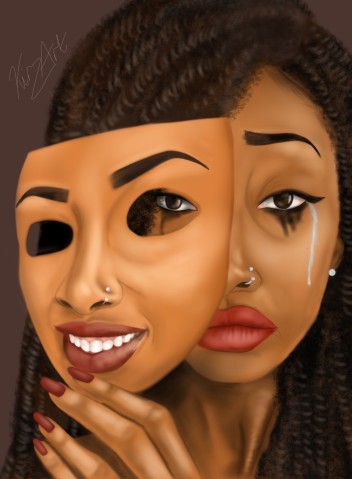
However, recently, with the number of female MCs increasing, it makes one wonder if Nicki Minaj can completely be considered important to hip-hop feminism. Although her feminism is positive, it is based on monopoly; feminism isn’t so “feminism” if there is only one woman dominating the space. Nicki Minaj, for a period of time, existed as the only mainstream voice when there was a need to listen to other backgrounds and communities. However, there is irony in her fourth studio album titled “Queen” which would make people think it is rooted in empowerment despite her disrespecting anyone who critiqued her. For example, she told a writer named Wanna, who critiqued her work, “eat a dick you hatin ass hoe…Just say you jealous. I’m rich, famous, intelligent, pretty and go! But wait, leave my balls. Tired of you sucking on them” (Golding, 2018).
She also takes shots at other female MCs to tightly firm her status. In her song “Chun Swae” featuring Swae Lee, Nicki Minaj divulged the real reason why she named her album “Queen”; it was not to uplift others, rather to uplift herself as the self-proclaimed queen of rap. “You’re in the middle of Queen right now, thinking/’I see why she called this shit Queen/This bitch is really the fucking queen—ahh!’” (Minaj & Lee, 2018). This may be true to her fans, however, there are many attempts to claim her title by calling down on other women in hip-hop and rap. Although she features Foxy Brown in her song “Coco Chanel”, there are many songs such as “Hard White” and “LLC” that are perceived as insults towards other female MCs. Interestingly, she told Elliot Wilson during a CRWN interview, “Every two years I get told about some new female rapper. To me, it’s silly to compare me to women because there’s no woman that can put up the stats that I’ve generated” (Saponara, 2018). When Minaj resorts to immaturely patronizing other women based on their looks and success to prove her fame, as she did with Wanna and to other artists via her music, it makes her feminism appear to be a pretense. Feminism to many is a commitment to better the lives of many women and bring about equity and equality for all genders, not something to be used for the sake of a narrative.
Hence, Nicki Minaj seems to have embodied hip-hop feminism while contradicting it. , Hip-hop feminism intends to deconstruct this narrative and reclaim Black women’s sexuality and agency. Minaj does this by subverting habitual gender norms in hip hop by implementing her sexual agency and embracing her body type. She flips gender roles by using men for sexual needs and using them as “vixens”, roles which women had in music videos throughout most of hip-hop history. Also, by mimicking certain Western standards of beauty, Minaj sensationalized and undermined Barbie. Nicki Minaj did not attempt to conform to Western beauty ideals; instead, she deconstructed ideas revolving around Western beauty, white supremacy, and black womanhood through her parody-like imitation of Barbie. She also reclaimed the word “bitch” which is a form of hip-hop feminist symbolism. However, Nicki Minaj recently has been known for demeaning other women through social media and her music. Her feminism, uplifting other women, seems to have vanished with a large increase in female MCs such as Cardi B, Saweetie, and City Girls. Instead of embodying hip-hop feminism like she used to, she seems to be more preoccupied with keeping her crown.
References
Ahmed, I. (2011, May 31). Who Is Kreayshawn? Retrieved from Complex: https://www.complex.com/music/2011/05/who-is-kreayshawn/oakland
Durham, A., Cooper, B. C., & Morris, S. M. (2013). The Stage Hip-Hop Feminism Built: A New Directions Essay. Signs: Journal of Women in Culture and Society, 38(3), 721-737. doi:https://doi.org/10.1086/668843
Gibson, A. (2015, March 1). The Body Politic: Black Women’s Journey to Reclaim Our Bodies and Selves. Retrieved from For Harriet: http://www.forharriet.com/2015/03/the-body-politic-black-womens-journey.html
Golding, S. (2018, July 1). Nicki Minaj Viciously Responds To A Writer’s Critique Of Her Music. Retrieved from Vibe: https://www.vibe.com/2018/07/nicki-minaj-responds-to-writers-tweet
Greene, A. (2010, December 1). Nicki Minaj Opens Up on Childhood Abuse, Sexuality . Retrieved from Rolling Stone: https://www.rollingstone.com/music/music-news/nicki-minaj-opens-up-on-childhood-abuse-sexuality-251003/
Minaj, N., & Lee, S. (2018). Chun Swae Lyrics. Retrieved from Genius: https://genius.com/Nicki-minaj-chun-swae-lyrics
Moody, M. (2011). A rhetorical analysis of the meaning of the “independent woman” in the lyrics and videos of male and female rappers. American Communication Journal, 13(1), 43-57. Retrieved from http://ac-journal.org/journal/pubs/2011/spring/Moody-Ramirez.pdf
Murphy, K. (2010, April 29). V Vintage: Nicki Minaj… Before The Fame. Retrieved January 25, 2018, from Vibe.
Pough, G. D. (2004). Check It While I Wreck It: Black Womanhood, Hip-Hop Culture, and the Public Sphere. In G. D. Pough, Check It While I Wreck It: Black Womanhood, Hip-Hop Culture, and the Public Sphere (pp. 100-101). Boston: Northeastern University Press.
Saponara, M. (2018, August 15). From ‘Queen’ to Remy Ma, Here Are 12 Memorable Quotes from Nicki Minaj’s #CRWN Interview With Elliott Wilson. Retrieved from Billboard: https://www.billboard.com/articles/columns/hip-hop/8470302/nicki-minaj-crwn-elliott-wilson-recap
Spillers, H. J. (1987, Summer). Mama’s Baby, Papa’s Maybe: An American Grammar Book. Diacritics, 17(2), 64-81. doi:10.2307/464747
Wallace, M. (1979). Black Macho and the Myth of the Superwoman. Verso.
Wang, A. X. (2017, February 13). Why Chance the Rapper—who just made Grammy history—gives his music away for free. Retrieved from Quartz: https://qz.com/908815/why-chance-the-rapper-who-just-made-grammy-history-gives-his-music-away-for-free/
White, T. R. (2013, September 4). Missy ‘Misdemeanor’ Elliott and Nicki Minaj: Fashionistin’ Black Female Sexuality in Hip-Hop Culture—Girl Power or Overpowered? Journal of Black Studies, 44(6), 607-626. doi:https://doi.org/10.1177/0021934713497365
Whitney, J. D. (2012, June). Some Assembly Required: Black Barbie and the Fabrication of Nicki Minaj. (M. Forman-Brunell, Ed.) Girlhood Studies, 5(1), 141–159. doi:doi:10.3167/ghs.2012.050109.